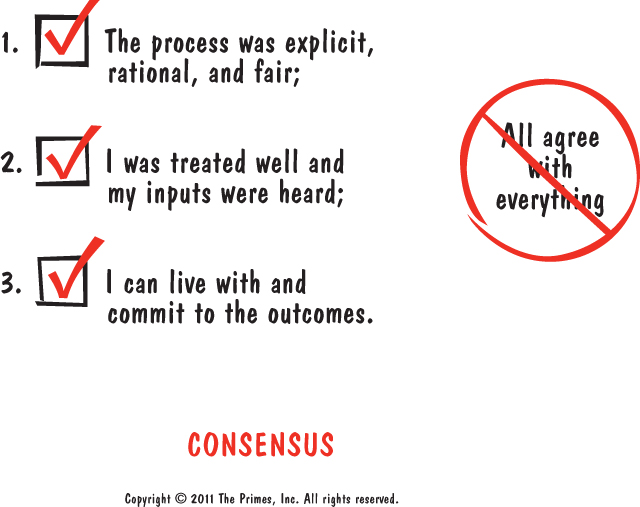
Are you still using the traditional definition of consensus? Are you aware of how destructive the traditional definition is?
The most challenging environments in which to pursue transformation and problem solving are institutes of higher learning and multilateral organizations like the World Bank, the International Finance Corporation, and the United Nations. They're stuffed full with brilliant people. Yet as Peter Keen, a gifted colleague at the World Bank, once remarked, “Intelligence is like having four-wheel drive: you usually end up stuck like everybody else, just in a more remote location.”
When I sat with Michael Doyle one afternoon and lamented my inability to secure a critical decision at the World Bank, he asked gently, “What are you trying to do?” I replied, “I'm just trying to get everyone to agree!” Michael looked at me penetratingly and said, “Why would you ever try to do that?” Then he took a napkin and drew the CONSENSUS PRIME. He called it a working definition of consensus and helped me see the group's lack of agreement in a new way. I immediately understood that my job was not to get everyone to agree. Setting this as my goal immediately gave any single rogue individual disproportionate power. A bad actor need only “disagree” (see LAGGARD PRIME) and consensus would be impossible.
My job, and your job, is to get the group to adopt the working definition ...
Get The Primes: How any Group can Solve any Problem now with the O’Reilly learning platform.
O’Reilly members experience books, live events, courses curated by job role, and more from O’Reilly and nearly 200 top publishers.

